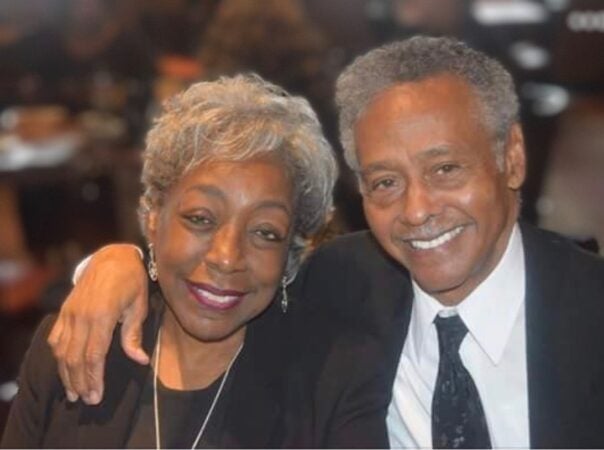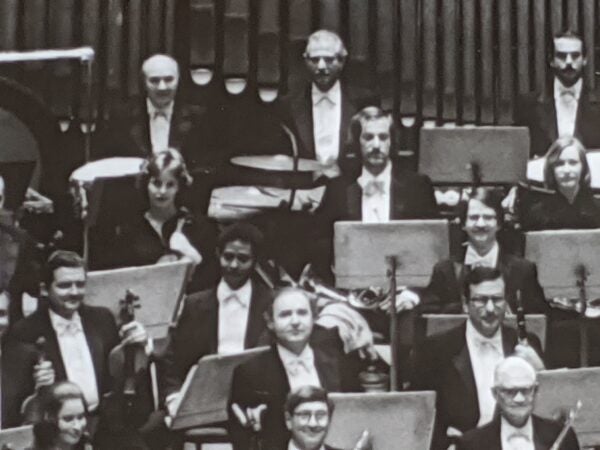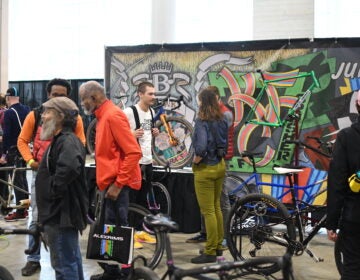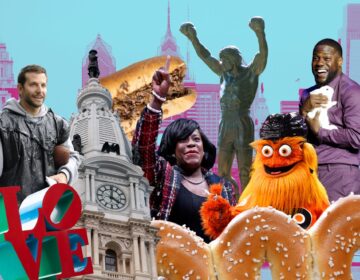Philly Orchestra’s first Black player’s final curtain call
Booker Rowe, the first African American to play with the Philly Orchestra, on his historic career and why the traditionally white world of classical music still has work to do
Listen 17:23-

Booker Rowe is pictured with his wife, Dr. Patsy Baxter Rowe, who is also a musician and wrote about his career for the orchestra. (Courtesy of Booker Rowe)
-

Violinist Booker Rowe was the first Black violinist in the Philadelphia Orchestra. He recently retired after 50 years with the orchestra. (Courtesy of Booker Rowe)
-

Violinist Booker Rowe was the first Black violinist in the Philadelphia Orchestra. He recently retired after 50 years with the orchestra. (Courtesy of Booker Rowe)
When the Philadelphia Orchestra paused live performances in March, violinist Booker Rowe didn’t expect it would be his final curtain call. Rowe was the first African American to play with the orchestra and has been with the group since 1968. But the pandemic conjured up an unexpected feeling that maybe it was time to retire.
“I’ve been doing this for 50 years, and I thought maybe it’s time to do something else,” Rowe said.
Just when Rowe when thought he’d go quietly, his wife Dr. Patsy Baxter Rowe, an accomplished soprano and music theorist, wrote a long tribute to her husband on the orchestra’s website.
Booker and Patsy Rowe discuss why his historic career illustrates that progress can be made to diversify the traditionally white world of classical music — and why that world still has a long way to go.

Hear the whole story on The Why
Interview Highlights
Patsy Rowe on how she met Booker
Well, we first met in in 1966. It was the summer. It was at the Philadelphia Orchestra’s concert at [what used to be called] the Robin Hood Dell East, which is the orchestra’s outdoor summer home. I was there with a girlfriend, and at intermission we were talking to a friend of mine who was a fellow student at the Philadelphia Musical Academy, and he saw Booker and said, “Oh, there is Booker Rowe …” And so he called him over.
And right away, Booker began to talk to me and he invited me to sit with him for the second half of the concert. And he offered to take us all home and invited us out for ice cream. And on the way home, he asked me to hold his milkshake while he was driving. And well, after a while, the bottom fell out of the carton, spilling the milkshake all over my lap!
Booker Rowe on how he started playing the violin
I had my first lesson in November 1952. I was in the sixth grade, and that was at the elementary public school. E. M. Stanton at 16th and Cumberland in North Philadelphia. And we lived just a block and a half from there.
I have to give you sort of a little little general idea of what was going on in Philly at the time. There were lots of community orchestras in the city like the Germantown Symphony, the West Oak Lane Symphony … But there was also one for African Americans, the only one, and that was the Philadelphia Concert Orchestra. And I went there because, goodness, where else could I see African Americans in any large numbers playing classical music?
On why there aren’t many Black classical violinists
BOOKER: It’s an early education that’s missing, and it’s extremely important. It’s the opportunity to develop on a level playing field, so that children are given the opportunity through the schools … to experience that. And we know that that even before they can play, they just need to be exposed to that. You need to have that in in your environment …
PATSY: But suddenly, to the dismay of Philadelphia residents … we witnessed a clear decline in the quality of the public school system, and it became evident in the late ’60s and ’70s and and and now even to today, public schools are struggling with very limited resources, with poor and dangerous facilities and limited or no programing at all in in math and science and the arts. I mean, arts have been taken out of so many schools and Booker’s success like many from our generation was without a doubt fostered by an excellent public school system. And this is is what is missing today.
WHYY is your source for fact-based, in-depth journalism and information. As a nonprofit organization, we rely on financial support from readers like you. Please give today.






